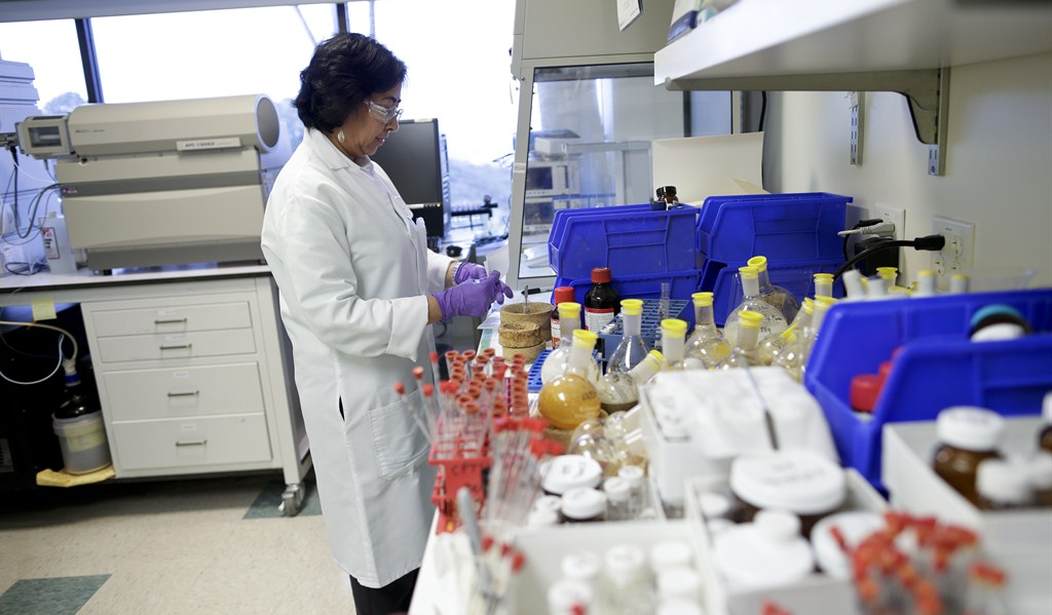If you or a loved one suffers from a serious and debilitating disease and hope for improved treatment or a cure, the recent history of medical progress should be encouraging. Since I began practicing medicine, U.S. longevity has increased by a decade, deaths from the most common killer, cardiovascular disease, have dropped by 60%, and cancer deaths, the next most common cause, are at an all-time low. HIV-infected individuals, once doomed, live normal albeit medicated lives. Arthritis sufferers previously condemned to pain, crutches and wheelchairs enjoy relative comfort and mobility. Unfortunately, pernicious myths conspire to undermine this progress.
One common myth asserts that private industry exploits academic research to develop medical products—for which it overcharges. Critics claim if industry spent less on marketing and more on research it could charge less.
Despite its intuitive appeal, this myth fails to hold up under closer inspection. While academic research provides substantial background information used by industry as well as more limited information about potential drug targets, this information is often unreliable and generally requires substantial follow-up and further development by industry before it can be tested in humans. Start-up and established biopharmaceutical and device companies perform the overwhelming majority of such work. Consequently, 80% of new drugs and most medical devices approved by the FDA originated from inventions created solely by companies.
Furthermore, companies alone are responsible for the difficult and financially hazardous tasks of formulating, testing, and commercializing new drugs. Nearly 90% of drugs that enter human clinical trials are never approved. The financial stakes associated with such failures are enormous. Once the failure rate and cost of financing are factored in, bringing a new drug to market in the United States is now estimated to cost $2.5 billion. This cost has increased 100-fold during my lifetime, as more stringent FDA testing requirements have been engrafted on the inherent difficulty of deciphering and exploiting biology’s secrets.
Recommended
Once a product has been approved, the manufacturer could theoretically forgo marketing and allow the product to diffuse into practice unaided. However, such diffusion can take decades and patent lives are by their nature limited. Any company that allowed a potentially profitable product’s patent to lapse while awaiting such diffusion would be committing corporate suicide. Marketing is ubiquitous in the business world precisely because it provides a return on investment. By broadening the customer base, biopharmaceutical and medical device manufacturers are able to distribute the high fixed cost of developing the product over a larger number of product sales, as more sales will occur within the product’s patent. The product can, therefore, be sold at a lower price than would be possible without marketing, contrary to the popular misconception that advertising raises costs.
Moreover, marketing plays an important role in disseminating FDA approved information about new products to healthcare providers. Such information undergoes more rigorous vetting and is of higher quality than that provided in medical journals. After receiving this information, providers make informed decisions about whether to use new products in their practice.
Myths such as these compromise medical progress. They encourage product excise taxes, price controls, weakening of essential patent protection, and other political rent-seeking schemes that erode essential corporate profitability. Those profits are what allow companies to innovate. Without them, investors would flee the sector, reducing the capital available to fund medical innovation and slowing medical progress. Disturbingly, several studies recently published in Health Affairs, suggest that current profits may be sufficient to sustain the present level of medical innovation. Let us hope they are wrong and avoid worsening the situation through additional ill-considered legislation.

























Join the conversation as a VIP Member